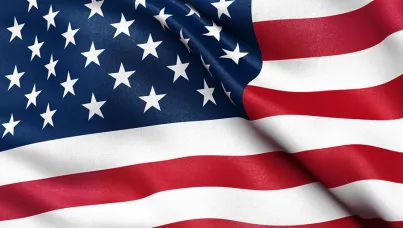2016-2017: The Year of Disruptive Elections - August 2016
Early in June, Ipsos presented at a seminar in Paris looking ahead to the forthcoming elections in the United States and France. The event, hosted by the US Embassy, saw Brice Teinturier (Ipsos Public Affairs, France) and Clifford Young (Ipsos Public Affairs, USA) describe the prevailing mood in their respective countries and what this means for the political scene.
The assessment of the current French situation is stark
- 86% feel that France is in decline – although 62% think this is not irreversible
- Just 13% say the economy is in “good” shape – the lowest in Europe
- 65% believe that “there are too many foreigners in France”
In the wake of the Nice attack, Brice Teinturer has written this update on the current French political climate for The Politics Wire.
France 2017: A presidential election in an environment of disruption
Never has a presidential election in France started against a backdrop of so many “unknowns”, and so much disruption.
Under “normal” circumstances, it feels like a fairly straightforward scenario. The political odds are clearly stacked against the incumbent President, François Hollande, who has seen his support fracture, both among his own voters and among the French public at large:
- He has lost the support of 59% of those who voted for him in 2012.
- Asked to rate his performance on a 10-point scale, 41% give him a score of zero (the average is just 2.1/10).
- As he reaches the end of his term of office, it looks like it will be the end of the road for the socialists, and that the Right will regain control after the May 2017 elections.
But at the same time, we now have other unknowns at work:
- It’s the first time in the history of the Fifth Republic that the Right have organised their own “primary elections” with the additional dimension being that a former President, Nicolas Sarkozy, is offering himself as a candidate. There is a paradox here: he has a reasonable chance of winning his own party’s nomination, but he is unpopular in the country, something which could improve François Hollande’s chances somewhat.

- It’s the first time also that an outgoing President will be participating in primary elections, with François Hollande having to go on the campaign trail to be the candidate of the Left. Whether he ends up with a stunning success, a reinforcement of his position, a thin victory, or indeed elimination … it will all depend on his rivals and how they approach the campaign.
- It’s the first time that a serving minister, Emmanuel Macron, is setting himself up as a potential candidate, having launched his own political movement and criticised his own government, while at the same time knowing that his future reputation will depend on how well he is felt to be doing in his current role as economy minister.
- And it’s the first time that the country has had to cope with repeated acts of terrorism, turning the political world upside down, accentuating social and cultural divisions, leaving the authorities in a state of vulnerability and powerlessness.
The winner in 2017 will the one best able to master these unexpected events and disruptions.
US 2016: Rise of Nativism and Populist sentiment
- Political polarisation of Nativism
- Nativism increasingly driving Republican voters





